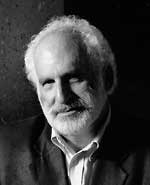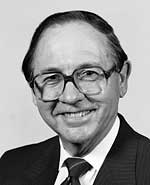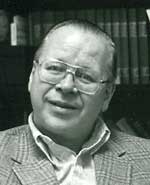Richard Sacks
Professor of Chemistry Richard Sacks died Feb. 11 at his home in Ann Arbor after a courageous battle with cancer. He was 63.

Sacks received his bachelor of science in chemistry from the University of Illinois at Urbana-Champaign in 1965, and his doctorate in analytical chemistry from the University of Wisconsin-Madison in 1969. He began his career as an assistant professor in Ann Arbor that same year and was promoted to associate professor in 1974 and full professor in 1979. He served the Chemistry Department as associate chair for graduate studies from 1987-92.
During his 37 years as a faculty member, Sacks taught both undergraduate and graduate students the principles of modern analytical chemistry and instrumentation and was a driving force in modernizing the analytical chemistry curriculum. He developed courses on chemical instrumentation at the undergraduate level and, at the graduate level, he introduced courses on electronic measurements and microcomputer control of analytical instruments, as well as modern separations methods.
He served as mentor to more than 35 doctoral graduate students who have gone on to distinguished careers in academia, industry and government laboratories.
Sacks was recognized internationally for his pioneering work on analytical instrumentation. During the early part of his career his research focused on novel atomic emission spectroscopic methods, including direct solid-sample elemental analysis. In the 1970s he developed exploding thin film platforms for solids analysis that combined simplicity of sample introduction with unprecedented low detection limits. In the mid-1980s, he turned his attention to innovative approaches to high-speed gas chromatographic separations of complex mixtures of volatile organic compounds. His methodologies reduced measurement times for complex mixtures almost 100-fold and attracted great academic and industrial interest, eventually leading to formation of a spin-off company, Chromatofast Inc.
In recent years he helped to lead efforts at the University to create wireless micro-analytical systems for environmental, homeland security and deep-space applications. During his career, Sacks and his colleagues published more than 150 research papers on these topics and presented their findings at scientific conferences all over the world.
Sacks is survived by his wife, Kristine, and daughter, Jenny.
A public memorial service will be held at 2 p.m. March 9 in the Vandenberg Room of the Michigan League. The Department of Chemistry has established the Richard D. Sacks Memorial Travel Award, which will be used to support yearly travel awards for analytical chemistry graduate students to present their research at technical conferences. For more information, call (734) 615-9852.
Edwin McClendon
Edwin J. McClendon, professor emeritus of education and health education, died Jan. 21 in Ann Arbor. He was 84.

As an educator and administrator, McClendon devoted his life to the promotion of education and public health awareness. “He had a keen grasp of how education about health should be carried out in local schools and he had a very considerable impact on Michigan, particularly in Michigan schools,” says Scott Simonds, professor emeritus of health behavior and health education at the School of Public Health (SPH) and a former colleague of McClendon.
Prior to joining the U-M faculty, where he held joint appointments in SPH and the School of Education, McClendon worked in public schools as a teacher, high school principal, director of secondary education and school superintendent.
He spent more than a decade with the Wayne County Intermediate School District as an education health consultant and later served as assistant state superintendent of education for the Michigan Department of Education Comprehensive Health Programs. McClendon also was instrumental in the development of Schoolcraft College in Livonia.
“His extensive work in Michigan enabled him to contribute extensively to the continuing education of teachers throughout the state and to the development of improved curricula and policies at district levels,” Simonds says. “And his experiences in Michigan were adopted elsewhere through his leadership in national organizations and through several consultations with and for the World Health Organization (WHO).”
Born in Troy, Okla., McClendon was part Choctaw Indian. During World War II, he served in the Navy and attained the rank of lieutenant. He moved to Detroit in 1955.
During his tenure at U-M from 1972 until his retirement in 1992, McClendon produced more than 50 monographs, articles and research reports, and he wrote or co-authored seven books, including “Healthful Living for Today and Tomorrow” (1978) and “Health and Wellness” (1987), a text widely used in high schools. He was chair of the Native American Studies sequence in American Culture and represented Native Americans on the University Minority Affairs Council. McClendon also served as a consultant to the WHO.
A resident of Plymouth, McClendon was a member and president of the Plymouth-Canton Board of Education for 14 years. In his honor, the school administrative center was renamed the E. J. McClendon Center in 1993.
He is survived by a son, Edwin Jr.; daughters, Melody Lang and Joy McClendon; and two brothers, four sisters and four grandchildren.—Submitted by Terri Mellow, SPH
Joachim Bruhn
Joachim Bruhn, professor emeritus of German and humanities at U-M-Dearborn, died Dec. 12 in Munich, Germany, due to complications from a fall. He was 78.

U-M-Dearborn)
Bruhn served as dean of the U-M-Dearborn College of Arts, Sciences, and Letters from 1974-79 and was director of the Honors College from 1979-83. He also helped create the International Studies Program and was its director from 1981-84. He retired from the faculty and was named professor emeritus in 1992.
At U-M-Dearborn, he taught a wide range of courses, including East German literature at a time when the subject often was neglected.
“A dynamic and enthusiastic teacher, he had great success in attracting and keeping students in the German program,” the regents noted at the time of Bruhn’s retirement. “He maintained active contact with area high schools, and his yearly travels to East and West Germany kept his teaching informed by direct and up-to-date experience of current events and trends.”
Bruhn sought other ways to enrich cultural lives, including organizing groups of students and their families to attend concerts of the Detroit Symphony Orchestra. After his retirement, Bruhn returned to Germany where he was able to take advantage of the wide array of musical and artistic offerings, including concerts, music festivals and art shows.
A native of Germany, Bruhn earned his doctorate from the University of Kiel, and also studied at the University of Zurich, Oxford University and Brown University. Before joining the U-M-Dearborn faculty in 1974, he taught on the Ann Arbor campus and at Duke University, and held administrative and faculty positions at Virginia Polytechnic Institute and the City University of New York.
Upon retirement, he moved to Munich after serving as guest lecturer at the University of Rostock in the former East Germany.
Survivors include his companion, Gertrud Diekmann; his former wife, Marsha Bruhn; son, Dieter Bruhn; and daughters, Elisa Wells, Erika Bruhn and Christa Bruhn.
A memorial service will be held during a family reunion in Michigan in August.
Memorial contributions may be sent to the Joachim “Kim” Bruhn Scholarship for International Study at the Office of Institutional Advancement, 1040 Administration Building, U-M-Dearborn, 4901 Evergreen Road, Dearborn, MI, 48128. The scholarship fund will support study-abroad programs for U-M-Dearborn students.—Submitted by Jennifer Sroka, U-M-Dearborn

